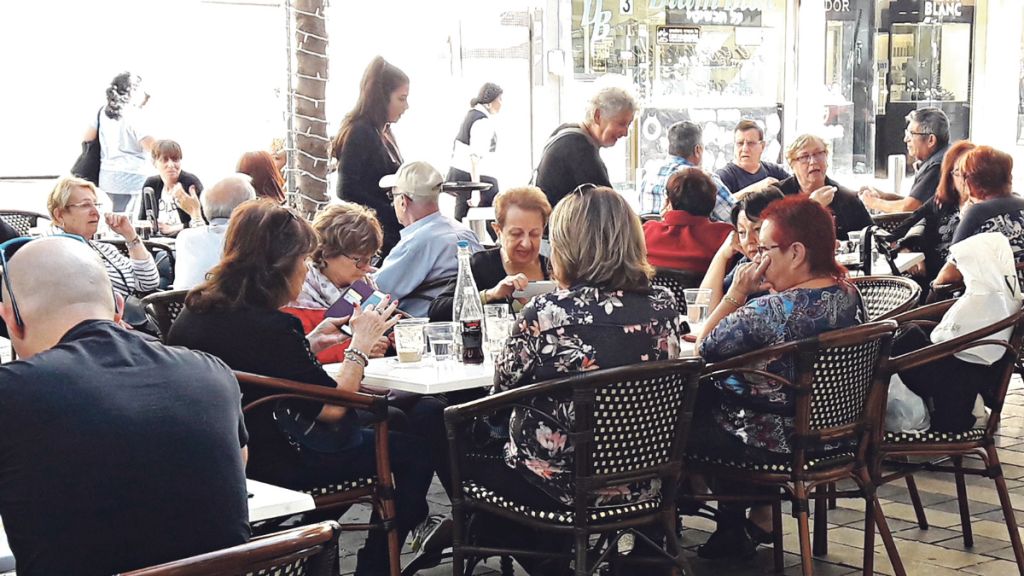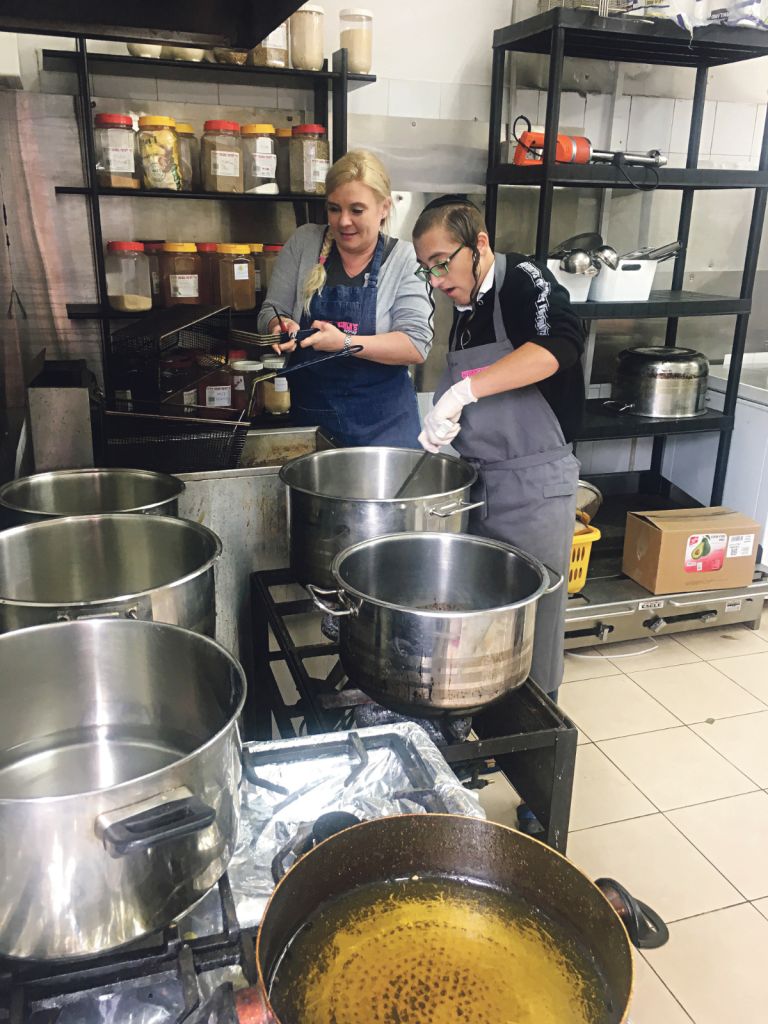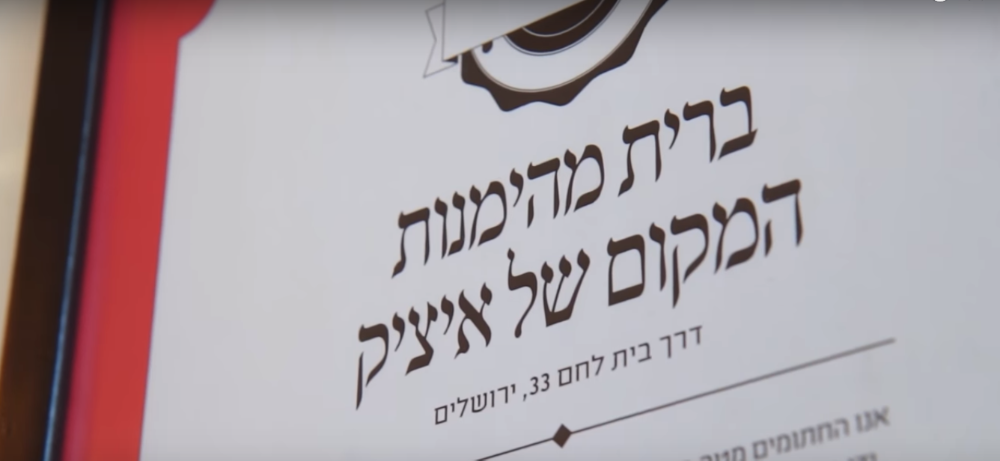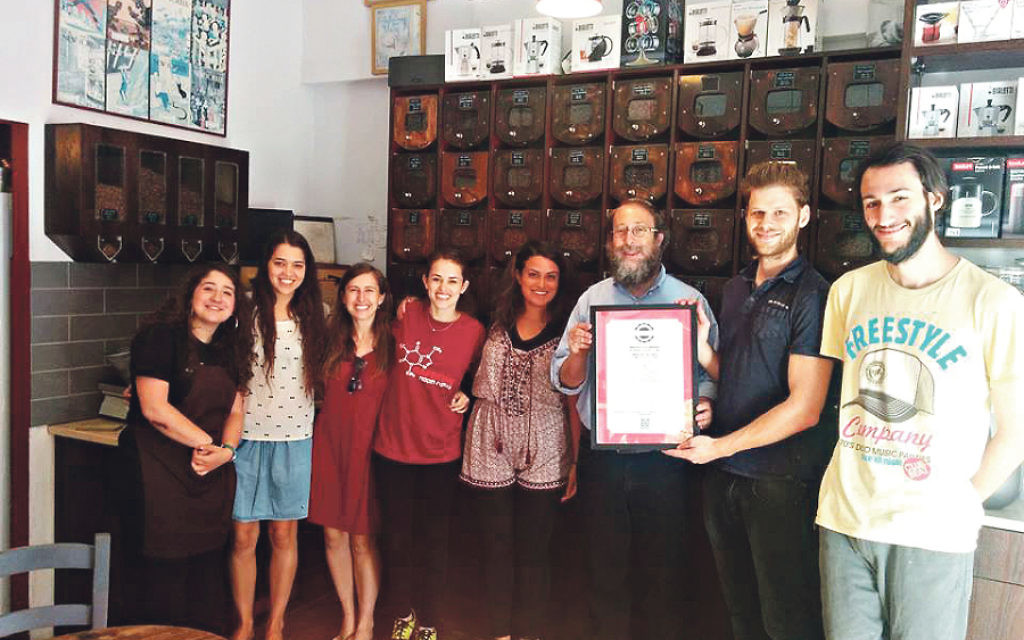Restaurant rebels put Israel’s kosher ‘racket’ under the grill
Kosher has become even more complicated in Israel thanks to a new ruling that states restaurants can serve 'kosher' food without a rabbinical certificate
From humble falafel and shwarma to international celebrity chefs, Israel’s culinary scene has it all. For the kosher traveller, Israel can be a haven: no more label-reading or app-checking in the supermarket to see whether something’s “on the list”. Most hotels and all the main supermarkets are certified kosher.
When it comes to restaurants, however, it’s a whole different plate of hummous. As regular visitors will know, non-kosher restaurants are plentiful, including those that serve “steak lavan” [pork] and calamari. Non-kosher cafés and restaurants open during Shabbat, so long as the local municipality permits it, whereas kosher establishments may not. The State Rabbinical Authority – the same official body that controls marriages, divorces and circumcisions – was in sole control of kosher licensing, charged with supervising food businesses and bestowing the all-important kashrut certificate.
Until now, that is. In recent months, a row over who decides what’s kosher has led all the way to Israel’s High Court of Justice.
Get The Jewish News Daily Edition by email and never miss our top stories Free Sign Up
The 2017 annual report by the State Comptroller, a government watchdog, led with a blistering criticism of the kosher certification process. It accused the Rabbinate of mismanagement and corruption, nepotism and widespread fraud.
“It is a bit of a racket,” says Shoshana Zisovitz, who owns Tasty, a grilled-chicken and meat sandwich bar in Bet Shemesh. Zisovitz, who grew up in Manchester, runs the place with her husband Yair. On Thursdays and Fridays, they offer takeaway Shabbat meals.
“Paying out for the kashrut is one of the biggest expenses we have,” she explains.
Several thousand inspectors – it’s not known exactly how many – make visits to Israel’s eateries, to check things like food sanitation, the separation of meat from dairy products and to ensure that all the raw ingredients have been sourced from approved suppliers.

Fees vary widely across the country, with anything from £100 a month for kosher approval to well over £400. It’s up to the business owner to negotiate with the kashrut inspector. More Orthodox consumers often demand a stricter certification, such as Badatz, an acronym for Beth Din Tzedek, which gives a seal of approval from specific rabbis.
In Bet Shemesh, Shoshana Zisovitz found that she was forced to pay twice – once for the standard rabbinical kashrut licence, and again for the special, stricter licence. “It’s a double whammy,” she says. “We’re under the Rabbanut because we have to be, but because of our clientele we have the Badatz hechsher. Why couldn’t there be an agreement between the different bodies?”
Switching up to Badatz hasn’t meant more frequent inspections, Zisovitz says. “Two times a week [the kashrut supervisor] comes round. In the kitchen we have cameras – they can always look and see what we’re doing. If you think you’d be getting more hours, you’d be wrong. You’re paying for the name of the hechsher.”
Kosher is complicated, and it just became more so thanks to a decision by the High Court, which ruled in September that restaurants can tell their customers that they serve kosher food even if they do not have the rabbinate’s certificate. It’s a victory for the organisers behind “Hashgacha Pratit”, which translates as “Private Supervision”. An initiative started by a group of Jerusalem restaurateurs together with orthodox Rabbi Aaron Leibowitz, a member of the Jerusalem city council, it trains its own supervisors, including women, to work in cooperation with the kitchen staff at participating restaurants and hotels.
Karoliina Hakala-Kahalani, owner of Curryliina’s restaurant and takeaway in Bnei Brak, insists the regular rabbinical system of kosher certification is working well. Born in Finland, Kahalani spent 26 years in north London before making aliyah four years ago with her husband and five daughters.
“We missed the curry – chicken tikka and everything,” she says.

The couple had industry experience, having been the owners of the Mr Bagel chain in London, but they were new to Indian cuisine and to the business of kosher supervision. They persuaded top London chef Kuldeep Singh to fly out to Israel to develop Curryliina’s menu.
“I said I want no dairy, no yoghurt, etc. He said ‘no way, it can’t be done’. He’d never cooked kosher. We can’t even use ghee, because that’s butter.”
Having found suitable premises in Bnei Brak (“everything in Ra’anana costs a bomb”), Kahalani set up a meeting with the Rabbinate to find out about getting her kashrut licence.
“There are about six authorities that can issue a certificate. [The Rabbinate] is the widest. You introduce yourself, provide references, that you’re a Jew and you understand, that you know how to keep kosher.

“I’m so lucky. I have the most amazing mashgiach (supervisor) called Shimon. He comes once or twice or even three times a day. He has endless patience to teach me, for example, about how to clean the broccoli. And as nice as he is, he still checks everything.”
Kahalani pays Shimon £235 a month to ensure that everything is strictly kosher. “It’s not an excessive amount for all the work that he puts in,” she says. “I have experienced no signs of corruption. Zero. I even offered him
a tip and he refused.
“Maybe it’s just [the authorities] here, in Bnei Brak,” she says. “I would almost say they’ve been easier to deal with than the
government bodies.”

Thank you for helping to make Jewish News the leading source of news and opinion for the UK Jewish community. Today we're asking for your invaluable help to continue putting our community first in everything we do.
For as little as £5 a month you can help sustain the vital work we do in celebrating and standing up for Jewish life in Britain.
Jewish News holds our community together and keeps us connected. Like a synagogue, it’s where people turn to feel part of something bigger. It also proudly shows the rest of Britain the vibrancy and rich culture of modern Jewish life.
You can make a quick and easy one-off or monthly contribution of £5, £10, £20 or any other sum you’re comfortable with.
100% of your donation will help us continue celebrating our community, in all its dynamic diversity...
Engaging
Being a community platform means so much more than producing a newspaper and website. One of our proudest roles is media partnering with our invaluable charities to amplify the outstanding work they do to help us all.
Celebrating
There’s no shortage of oys in the world but Jewish News takes every opportunity to celebrate the joys too, through projects like Night of Heroes, 40 Under 40 and other compelling countdowns that make the community kvell with pride.
Pioneering
In the first collaboration between media outlets from different faiths, Jewish News worked with British Muslim TV and Church Times to produce a list of young activists leading the way on interfaith understanding.
Campaigning
Royal Mail issued a stamp honouring Holocaust hero Sir Nicholas Winton after a Jewish News campaign attracted more than 100,000 backers. Jewish Newsalso produces special editions of the paper highlighting pressing issues including mental health and Holocaust remembrance.
Easy access
In an age when news is readily accessible, Jewish News provides high-quality content free online and offline, removing any financial barriers to connecting people.
Voice of our community to wider society
The Jewish News team regularly appears on TV, radio and on the pages of the national press to comment on stories about the Jewish community. Easy access to the paper on the streets of London also means Jewish News provides an invaluable window into the community for the country at large.
We hope you agree all this is worth preserving.
-
By Brigit Grant
-
By Laurent Vaughan - Senior Associate (Bishop & Sewell Solicitors)
-
By Laurent Vaughan - Senior Associate (Bishop & Sewell Solicitors)
-
By Laurent Vaughan - Senior Associate (Bishop & Sewell Solicitors)
-
By Laurent Vaughan - Senior Associate (Bishop & Sewell Solicitors)






















